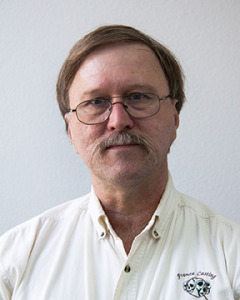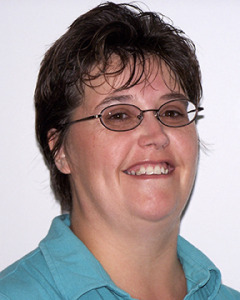Posted 11:22 a.m. Tuesday, March 10, 2015
Those who donate their bodies to science are really donating themselves to the education of the next generation of scientists.
Furthering education using human cadavers at UW-L
[caption id="attachment_39516" align="alignright" width="150"] Thomas Greiner[/caption]
UW-L has one of only a small number of undergraduate programs in the country that uses human cadavers to study anatomy. According to Greiner, who teaches graduate gross anatomy, this gives students an advantage.
“Students find that most bodies do not perfectly conform to the textbook description,” he says. “Sometimes muscles are missing. Sometimes nerves split apart or come together in unexpected patterns. These future clinicians need to realize that real bodies bear only a vague resemblance to their textbook presentations.”
Three UW-L departments host human cadavers. Students can use two cadavers in their studies in Mitchell Hall in the Exercise and Sports Science Department; students can use four cadavers in Cowley Hall in the Biology Department; and students in clinical graduate programs use 13 to 14 cadavers in the Health and Science Center.
Students in the anatomy graduate program have the added benefit of performing a dissection of the entire human body, notes Greiner. “Dissection becomes a process of discovery where the students have an opportunity to really appreciate where anatomical structures are and how they are situated relative to each other.”
This year, UW-L graduate programs will incur a 25 percent increase in cadaver expenses at the same time as the state mandated budget cuts. Both will have an impact on the graduate anatomy program. The effects on undergraduate anatomy programs have not yet been determined, notes Greiner.
With potential increased costs, donations are all the more appreciated. People who donate themselves are making a contribution toward the improved health and well-being of everyone, say Greiner and Hoar.
[caption id="attachment_39518" align="alignleft" width="150"]
Thomas Greiner[/caption]
UW-L has one of only a small number of undergraduate programs in the country that uses human cadavers to study anatomy. According to Greiner, who teaches graduate gross anatomy, this gives students an advantage.
“Students find that most bodies do not perfectly conform to the textbook description,” he says. “Sometimes muscles are missing. Sometimes nerves split apart or come together in unexpected patterns. These future clinicians need to realize that real bodies bear only a vague resemblance to their textbook presentations.”
Three UW-L departments host human cadavers. Students can use two cadavers in their studies in Mitchell Hall in the Exercise and Sports Science Department; students can use four cadavers in Cowley Hall in the Biology Department; and students in clinical graduate programs use 13 to 14 cadavers in the Health and Science Center.
Students in the anatomy graduate program have the added benefit of performing a dissection of the entire human body, notes Greiner. “Dissection becomes a process of discovery where the students have an opportunity to really appreciate where anatomical structures are and how they are situated relative to each other.”
This year, UW-L graduate programs will incur a 25 percent increase in cadaver expenses at the same time as the state mandated budget cuts. Both will have an impact on the graduate anatomy program. The effects on undergraduate anatomy programs have not yet been determined, notes Greiner.
With potential increased costs, donations are all the more appreciated. People who donate themselves are making a contribution toward the improved health and well-being of everyone, say Greiner and Hoar.
[caption id="attachment_39518" align="alignleft" width="150"] Kerrie Hoar[/caption]
Both Greiner and Hoar have the utmost respect for those who decide to donate their body to science, but Hoar has a personal connection. She has two relatives who donated their bodies for education.
“Every day in the lab, I encourage my students to take full advantage of the unique opportunity that our human cadavers offer,” Hoar says. “I hope to ingrain in our students a deep and lasting respect for those individuals who have given so generously of themselves.”
- A variation of this story by UW-L student Breanna Levine appeared in the Campus Connection in March 2014.
Kerrie Hoar[/caption]
Both Greiner and Hoar have the utmost respect for those who decide to donate their body to science, but Hoar has a personal connection. She has two relatives who donated their bodies for education.
“Every day in the lab, I encourage my students to take full advantage of the unique opportunity that our human cadavers offer,” Hoar says. “I hope to ingrain in our students a deep and lasting respect for those individuals who have given so generously of themselves.”
- A variation of this story by UW-L student Breanna Levine appeared in the Campus Connection in March 2014.
